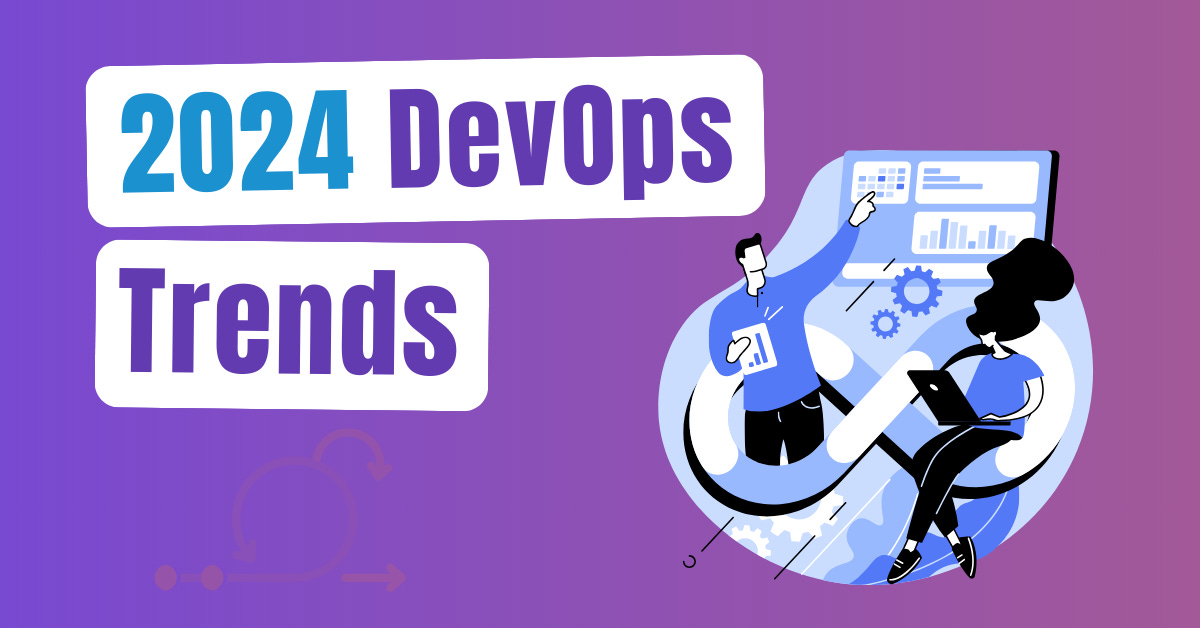The Next Wave of DevOps: Top Trends for 2024
As we approach 2024, it's clear that DevOps is evolving rapidly. The field is undergoing significant transformations, and developers and organizations need to stay up-to-date with emerging trends to maintain competitiveness and efficiency. In this article, we'll explore the top trends that are shaping the future of DevOps.
1. AI and ML in DevOps
The use of AI and automation in DevOps is not new. However, we expect to see a significant increase in the adoption of these technologies in the coming year. AI and ML are enhancing intelligent automation, enabling predictive analytics, and improving anomaly detection within DevOps processes.
2. DevSecOps and Security Integration
The increasing frequency and sophistication of cyber threats have necessitated the integration of security into every stage of the DevOps pipeline, leading to the rise of DevSecOps. This trend emphasizes the incorporation of security measures at each step of the software development life cycle, fostering a culture where security is a shared responsibility among all team members.
3. NoOps and Advanced Automation
The concept of NoOps, where operational processes are automated to such an extent that a dedicated operations team becomes redundant, is gaining momentum. NoOps envisions a future where systems become self-managing and self-healing, driven by intelligent automation.
4. Serverless Computing
The adoption of serverless computing is a trend that's significantly impacting DevOps in 2024. Serverless computing, where cloud providers dynamically allocate machine resources, allows developers to focus more on writing code rather than managing infrastructure. This trend is driven by the need for scalability, cost efficiency, and the simplification of deployment processes.
5. Enhanced Observability and Monitoring
Comprehensive observability and monitoring are becoming key priorities in DevOps. As systems grow in complexity, the need for advanced monitoring, logging, and tracing solutions to gain insights into application performance is crucial. Enhanced observability allows DevOps teams to preemptively address issues, improving the reliability and performance of applications.
6. Emphasis on Multi-Cloud and Edge Computing Strategies
The increasing adoption of multi-cloud and edge computing strategies is another trend that's impacting DevOps in 2024. A multi-cloud approach provides flexibility by optimizing workflows across multiple cloud providers. This trend is driven by the need for organizations to avoid vendor lock-in and ensure efficient resource utilization. Edge computing is also gaining traction due to its ability to process data closer to where it's generated, which is vital for applications requiring low latency.
7. GitOps and Infrastructure as Code (IaC)
GitOps and Infrastructure as Code (IaC) are two trends that are transforming DevOps in 2024. These trends are responses to the challenges of managing increasingly complex infrastructures and the need for more efficient methods of infrastructure provisioning.
8. ChatOps in DevOps
ChatOps, which integrates chat platforms with operational tools, is another trend that's impacting DevOps in 2024. Unlike traditional communication tools, ChatOps allows for direct interaction with software development tools within chat applications, enabling immediate responses and actions. This direct integration of communication and operations tools illustrates a practical approach to reducing response times and enhancing team agility.
9. Low-Code and No-Code Development
In 2024, low-code/no-code development is gaining momentum as organizations seek to speed up the development process and reduce costs. Low-code/no-code platforms are changing the DevOps landscape by enabling more rapid development and deployment of applications.
10. Rising DevOps Market and Cloud Adoption
The DevOps market is projected to grow significantly, from $10.4 billion in 2023 to $25.5 billion by 2028, at a Compound Annual Growth Rate (CAGR) of 19.7%, as reported by MarketsandMarkets™. These trends underline the expanding significance of DevOps in modern software development, emphasizing its growing market potential and impact.
Conclusion
As we look at the DevOps landscape in 2024, it's clear that the field is undergoing significant transformations. The adoption of AI and ML, the integration of security into DevOps, and the increasing use of automation are some of the trends that are shaping the future of DevOps.
Codegiant remains the all-in-one platform for meeting these evolving demands. With the integration of cloud-native solutions, enhanced security within the DevOps process, and a focus on automation, our platform aligns with the key trends shaping the future of DevOps.
If you found this article interesting, please share your thoughts in the comments below. We'd love to hear from you!


